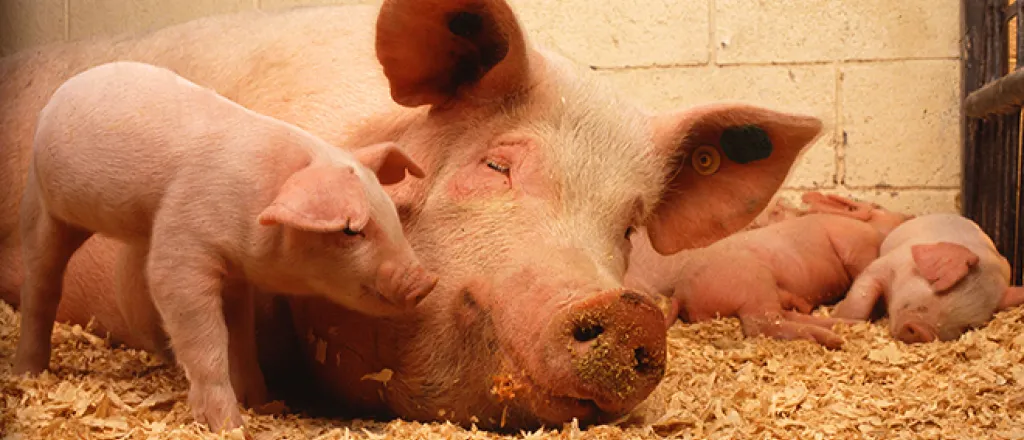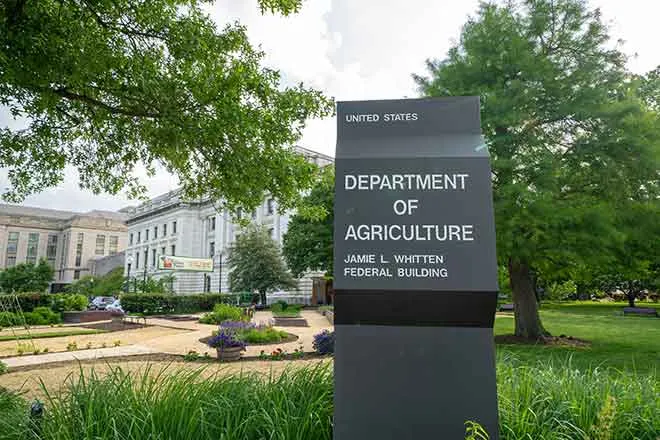
In leading pork producing states, California's law may alter farming
(The Center Square) – North Carolina hog farmers could take a major hit from a U.S. Supreme Court ruling Thursday that upheld a California animal cruelty law regulating pork sales in that state.
“Right now we’re still trying to digest the ruling to understand exactly what it says,” Roy Lee Lindsey, CEO of the NC Pork Council, said. “It was a very complex opinion.”
Agriculture is North Carolina’s largest industry, and the state is home to the top two hog producing counties in the country: Duplin County with nearly 2 million hogs, and Sampson County with more than 1.8 million. Bladen County is 11th nationally for hog production, while Wayne County is 17th.
Overall, North Carolina consistently ranks in the top three pork producing states at about 4.2 billion pounds annually, behind only Iowa at about 13.2 billion pounds and Minnesota at about 4.6 billion, according to U.S. Department of Agriculture data.
Smithfield Foods, the world’s largest producer, operates the world’s largest plant in Tar Heel – a small Bladen County community between Elizabethtown and Fayetteville. The industry has economic output of more than $10 billion for the state and 19,298 jobs, according to 2019 N.C. State University data.
The Supreme Court, with a 5-4 decision that was nonpartisan, upheld a California animal cruelty law that requires pork sold in the state to come from sows raised with a minimum of 24 square feet of space.
The ruling seemingly outlaws common metal enclosures used in the industry for breeding pigs for producers who want to sell pork in California, significantly reducing capacity.
“It has an impact as a whole across the country,” Lindsey said. “Its impact is not going to be limited to one state or two states, it’s going to affect all of us.”
In a prepared statement released later in the day, Lindsey added, "Hog farmers in North Carolina do not understand how the State of California should have any say in how hogs are raised in NC. Every day, hog farmers across North Carolina work to provide the proper care for OUR hogs. Just as we have for generations, our farmers will continue to work on continuous improvement – being just a little better every day – in everything we do. That includes raising animals responsibly, producing safe food, caring for the environment, caring for our employees, and investing in our communities.
"This is not a message of doom and gloom. NC hog farmers, and hog farmers across the country, are resilient. They have faced challenges before and always found a way forward. Proposition 12 is just THE latest in a long list of challenges our farmers will overcome."
The National Pork Producers Council predicts the ruling will result in higher prices for consumers and fewer small farms.
“We are very disappointed with the Supreme Court’s opinion,” said Scott Hays, a Missouri pork producer and president of the national council. “Allowing state overreach will increase prices for consumers and drive small farms out of business, leading to more consolidation.
“We are still evaluating the court’s full opinion to understand all the implications. NPPC will continue to fight for our nation’s pork farmers and American families against misguided regulations.”
California’s law stems from Proposition 12, approved by voters as an animal cruelty law in 2018 to allow sows room to turn around and lie down during gestation. The American Farm Bureau Federation and National Pork Producers Council challenged the law, arguing nearly all of the pork sold in California comes from hogs raised elsewhere.
The pork industry noted that nearly three-quarters of farmers raise sows in pens that do not comply with the law, which could cost the industry up to $350 million.
California produces one-tenth of 1 percent of the nation's pork. The Biden administration encouraged justices to side with pork producers. Justice Brett Kanvanaugh wrote within his dissent, "If one State conditions sale of a good on the use of preferred farming, manufacturing, or production practices in another State where the good was grown or made, serious questions may arise under the Import-Export Clause."
The Humane Society of the United States was a party to the case and cheered the Supreme Court’s decision not to restrict the California law.
Kitty Block, CEO of the Humane Society, said, “It’s astonishing that pork industry leaders would waste so much time and money on fighting this common sense step to prevent products of relentless, unbearable animal suffering from being sold in California.”
















